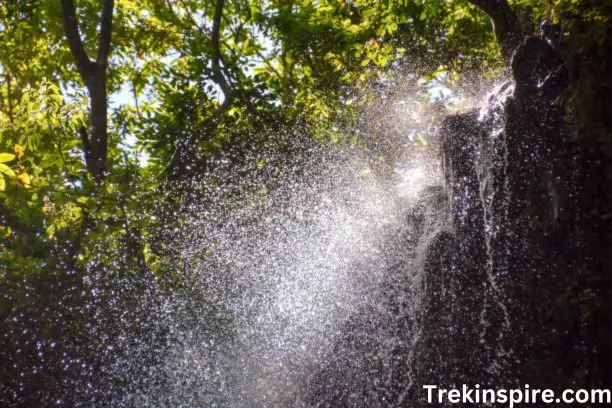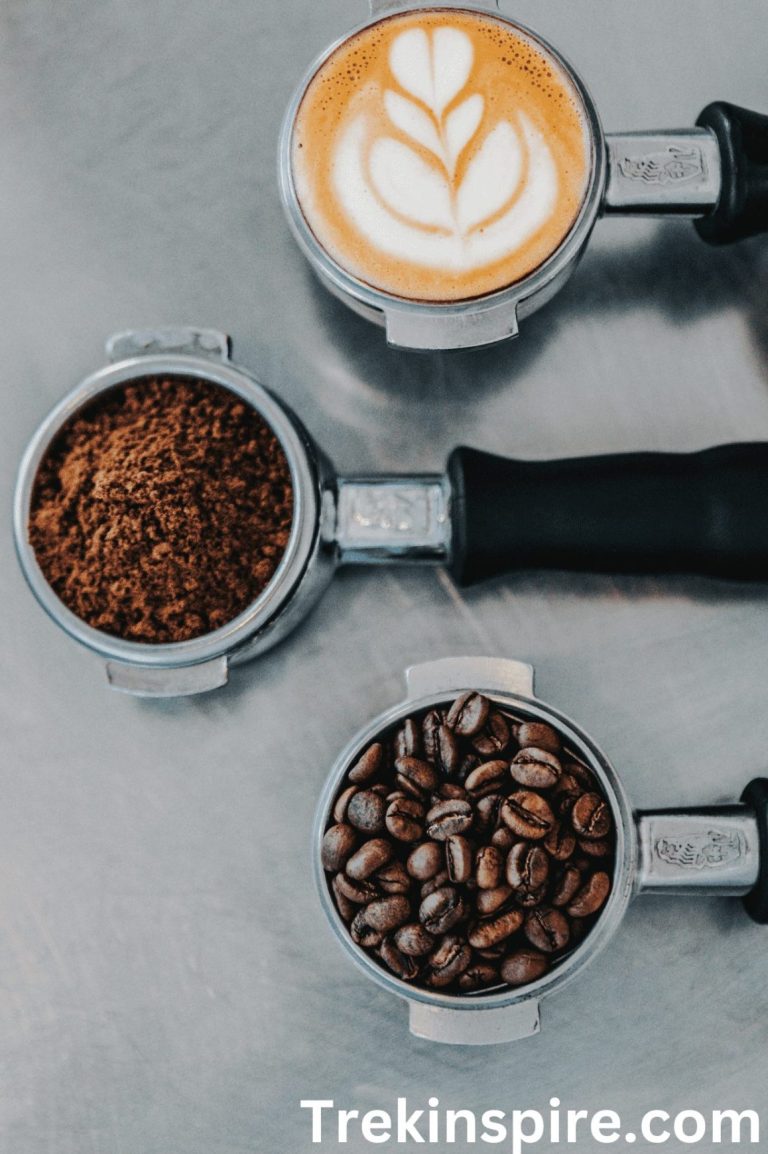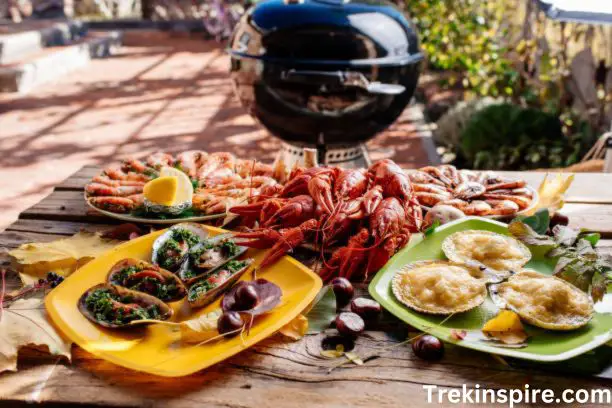Exploring the Chinese Cultural Festivals
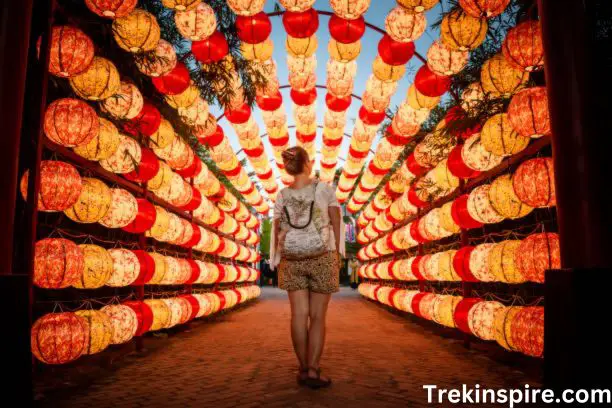
Chinese Cultural Festivals are vibrant celebrations of Chinese heritage, held worldwide to showcase the rich traditions, customs, and arts of the Chinese community. These festivals often coincide with significant Chinese holidays, providing a grand stage for the community to come together and embrace their cultural identity.
There are many Chinese Cultural Festivals held throughout the world. Here are a few of the most well-known:
- Vancouver Chinatown Summer Festival: Held annually in Chinatown, Vancouver, British Columbia, on the first weekend of August. The Vancouver Chinatown Summer Festival is a two-day celebration of Chinese culture and community held annually in the vibrant heart of Vancouver’s Chinatown. Established in 1993, this festival has become a beloved tradition, welcoming thousands of people from all walks of life to experience the rich tapestry of Chinese heritage.
- San Francisco Chinese New Year Festival: Held annually in San Francisco, California, during the Chinese New Year celebrations. The San Francisco Chinese New Year Festival is one of the most renowned celebrations of Chinese culture outside of Asia. It takes place annually in San Francisco’s vibrant Chinatown, drawing millions of visitors from around the world to witness its captivating blend of traditional customs, vibrant performances, and delectable cuisine.
- New York Chinatown Lunar New Year Parade and Festival: Held annually in Chinatown, New York City, during the Chinese New Year celebrations. The New York Chinatown Lunar New Year Parade and Festival is a vibrant celebration of Chinese heritage and culture, held annually in New York City’s bustling Chinatown neighborhood. It is one of the largest and most spectacular Lunar New Year celebrations in the world, attracting millions of visitors each year.
Festival Highlights
The Chinese Cultural Festival offers a multitude of attractions that cater to a wide range of interests. Here are some of the highlights:
- Traditional Chinese Music and Dance Performances: Immerse yourself in the mesmerizing sounds and movements of traditional Chinese music and dance, ranging from the elegant melodies of ancient instruments to the dynamic energy of folk dances.
- Authentic Chinese Cuisine: Tantalize your taste buds with an array of delectable Chinese dishes prepared by local restaurants and food vendors. From savory dumplings and stir-fries to sweet rice cakes and steamed buns, the culinary delights will transport you to the heart of China.
- Cultural Exhibits: Embark on a cultural journey through interactive exhibits that showcase the diverse facets of Chinese art, calligraphy, painting, and other traditional crafts. Also learn about the origins and symbolism behind these artistic expressions and gain a deeper appreciation for the rich cultural heritage of China.
- Children’s Activities: Engage your little ones in a variety of fun and educational activities designed to spark their curiosity about Chinese culture. From face painting and traditional crafts to interactive games and storytelling sessions, these activities provide an engaging introduction to Chinese traditions and customs.
Additional Attractions
Beyond the core attractions mentioned above, many Chinese Cultural Festivals also incorporate additional elements that enhance the overall experience:
- Martial Arts Demonstrations: Witness the grace and power of traditional Chinese martial arts, such as wushu and tai chi, as skilled practitioners demonstrate their mastery of these ancient disciplines.
- Lion and Dragon Dances: Experience the vibrant energy and symbolism of traditional Chinese lion and dragon dances, which are believed to bring good fortune and ward off evil spirits.
- Chinese Tea Ceremony: Immerse yourself in the delicate art of the Chinese tea ceremony, a tradition that has been passed down through generations, embodying harmony, respect, and mindfulness.
- Chinese Opera Performances: Delve into the captivating world of Chinese opera, a theatrical art form that combines singing, acting, and acrobatics, with elaborate costumes, makeup, and storytelling.
Chinese Festival 2023
Here are some of the highlights of the 2023 Chinese Culture Festival:
- The festival will take place on September 2, 2023, from 10:00 AM to 5:00 PM.
- The festival will held at Pennsylvania Avenue, between 3rd and 4th Streets, near Capitol Hill.
- The festival is free and open to the public.
- The festival will feature a variety of activities and performances, including traditional Chinese dances, martial arts demonstrations, calligraphy exhibits, and a food festival.
Chinese Food Festival 2023
The year 2023 has seen various Chinese food festivals held across the globe, showcasing the diverse and delectable culinary traditions of China. Here are some highlights of notable Chinese food festivals held in 2023:
- 1st Chinese Food and Culture Festival in Auckland, New Zealand: Held on May 21, 2023, at the Corban Estate Art Centre, this festival brought together the flavors and cultural essence of China, offering a vibrant atmosphere filled with authentic cuisine, traditional performances, and interactive workshops.
- Asia Food Fest in Bucharest, Romania: This annual festival, held in September 2023, celebrated the culinary diversity of Asia, with a strong focus on Chinese cuisine. Visitors enjoyed a tantalizing array of Chinese dishes, from dumplings and noodles to dim sum and stir-fries, immersing themselves in the rich flavors and aromas of China.
- ASEAN Food Festival 2023 in Shanghai, China: Held at the National Exhibition and Convention Center (Shanghai), this grand festival brought together the culinary talents of ASEAN nations, including China. Visitors savored a wide range of Chinese delicacies, from traditional dishes like Peking duck and Xiaolongbao to more modern fusion creations.
- Chinese Food Festival at the Smithsonian’s Freer and Sackler Galleries in Washington, D.C.: Held in August 2023, this festival explored the intricate relationship between Chinese food and culture. Visitors embarked on a culinary journey through China, experiencing the diverse flavors and traditions that define Chinese cuisine.
These Chinese food festivals represent just a glimpse into the global celebration of Chinese cuisine in 2023. Each festival also showcased the unique flavors, traditions, and cultural significance of Chinese food, fostering a deeper understanding and appreciation of this culinary heritage. Read Beecher Festival – 2023

Chinese Festival History
Chinese festivals are deeply rooted in ancient traditions and beliefs, reflecting the rich cultural heritage of China. These festivals have evolved over time, adapting to changing social and historical contexts while retaining their core significance.
Origins and Early Development
The earliest traces of Chinese festivals can found in the Shang Dynasty (1600-1046 BCE), where rituals and ceremonies were performed to appease gods and ancestors, ensuring blessings and prosperity. These early festivals were closely tied to the agricultural cycle, marking seasonal transitions and expressing gratitude for the harvest.
The Zhou Dynasty and Later Eras
During the Zhou Dynasty(1046-256 BCE), the concept of the five elements (wu xing) gained prominence, influencing the structure and symbolism of Chinese festivals. Each element was associate with specific colors, directions, and natural phenomena, imbuing the festivals with a deeper cosmological significance.
As China’s population and territory expanded, the diversity of festivals increased, reflecting regional customs and beliefs. The Tang Dynasty (618-907 CE) witnessed a flourishing of cultural exchange, leading to the adoption of foreign customs and the development of new festivals.
The Role of Rituals and Beliefs
Chinese festivals are not merely occasions for celebration; they are imbued with a deep sense of ritual and belief. Ancestral veneration, the concept of yin and yang (the complementary forces of the universe), and the pursuit of harmony with nature are central themes in many festivals.
Religious Influences
The introduction of Buddhism and Taoism during the Han Dynasty (206 BCE-220 CE) further enriched the tapestry of Chinese festivals. These religions introduced new concepts and rituals, shaping the ways in which Chinese people celebrated and understood their world.
The Importance of Family and Community
Chinese festivals are often seen as opportunities for family reunions and strengthening community bonds. They provide a time for people to gather, share meals, and strengthen their connections with loved ones. Read Strongsville Homecoming Festival – 2024
Modern Celebrations
While many traditional practices and customs remain central to Chinese festivals, modern influences have also shaped their evolution. Elements of pop culture, contemporary art, and global exchanges have added new layers of meaning and vibrancy to these celebrations.
Chinese Festivals as Bridges of Cultural Exchange
Chinese festivals have played a significant role in fostering cultural exchange and cross-cultural understanding. They have introduced people from different backgrounds to the rich traditions and beliefs of China, promoting mutual respect and appreciation.
In conclusion, Chinese festivals have a long and fascinating history, deeply intertwined with the cultural and spiritual life of China. Their ongoing evolution also reflects the dynamic nature of Chinese society and its openness to new influences. These festivals serve as vibrant expressions of Chinese heritage, bringing people together to celebrate their shared values and traditions.
Chinese Culture Day
Chinese Culture Day is a vibrant celebration of the rich traditions and heritage of China. It is typically in major cities around the world, bringing together people of all ages and backgrounds to experience the beauty and diversity of Chinese culture.
What to expect at a Chinese Culture Day?
A typical Chinese Culture Day will feature a variety of activities and performances, including:
- Traditional Chinese dances: The lion dance, dragon dance, and fan dance are just a few of the many traditional Chinese dances that are often performed at Chinese Culture Day events.
- Martial arts demonstrations: Martial arts are an integral part of Chinese culture, and demonstrations of various styles, such as kung fu and tai chi, are a popular feature of Chinese Culture Day celebrations.
- Food festivals: Chinese cuisine also known for its variety and flavor, and food festivals are a common part of Chinese Culture Day celebrations. Visitors can sample a wide range of dishes, from dumplings and noodles to dim sum and stir-fries.
- Cultural workshops: Chinese Culture Day events often include workshops where visitors can learn about traditional Chinese arts and crafts, such as paper cutting and origami.
In addition to these traditional activities, Chinese Culture Day events may also feature:
- Live music performances: Chinese music is a rich and diverse tradition, and live music performances are a popular part of Chinese Culture Day events.
- Fashion shows: Chinese fashion is becoming increasingly popular on the global stage, and fashion shows are an exciting addition to some Chinese Culture Day events.
- Tea ceremonies: Tea is an important part of Chinese culture, and tea ceremonies are a serene and meditative way to experience Chinese tradition.
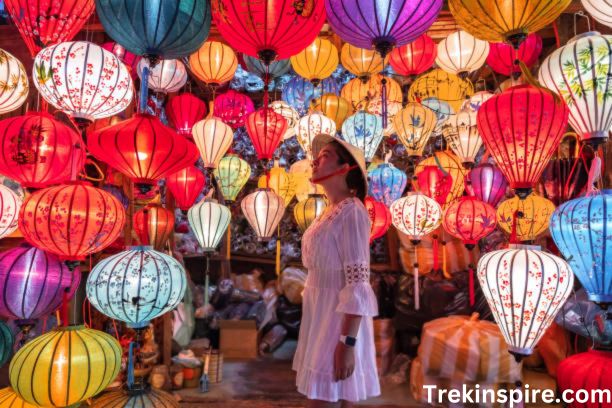
Why Celebrate Chinese Culture Day?
Chinese Culture Day is a valuable opportunity to:
- Learn about Chinese culture: The event provides a chance to learn about the history, traditions, and art of China.
- Experience Chinese culture: Visitors can immerse themselves in Chinese culture through a variety of activities and performances.
- Celebrate diversity: Chinese Culture Day is a celebration of the rich diversity of human culture.
- Promote understanding: The event can help to promote understanding and appreciation between different cultures.
Chinese Culture Day is a fun and educational event that is sure to leave a lasting impression on all who attend. It is a great way to learn about the rich history and traditions of China and to experience the beauty and diversity of Chinese culture. Read Road Trip Bar and Grill
Asian food festivals in Washington, D.C
Here is a list of upcoming Asian food festivals in Washington, D.C.:
- Asia America Gateway Festival (AAGF): This annual festival also celebrates Asian American and Pacific Islander (AAPI) heritage through food, music, dance, and other cultural activities. The festival also typically takes place in May or June and features a variety of Asian cuisines, including Chinese, Japanese, Korean, Vietnamese, and Thai.
- Asian Food Fest at the Smithsonian’s Freer and Sackler Galleries: This festival also takes place annually in August and features a variety of authentic Asian dishes, from traditional dumplings and noodles to dim sum and stir-fries. In addition to the food, the festival also features live music, dance performances, and cultural demonstrations.
- Asia Eats Festival: This festival takes place annually in September and features a variety of Asian cuisines, as well as live music, dance performances, and cultural demonstrations. The festival is a great opportunity to sample a variety of Asian dishes and learn about different Asian cultures.
- Taste of Asia: This annual food festival takes place in October and features a variety of Asian cuisines, as well as live music, dance performances, and cultural demonstrations. The festival is a great way to experience the diverse flavors of Asia.
- DC International Food Festival: This annual festival takes place in October and features a variety of cuisines from around the world, including Asia. The festival is also a great opportunity to sample a variety of international dishes and learn about different cultures.
In addition to these annual food festivals, there are also a number of pop-up Asian food events that take place throughout the year in Washington, D.C. These events typically feature a variety of food trucks and vendors serving a variety of Asian cuisines.
Chinese Festival Performances
Chinese festivals also known for their captivating performances, showcasing the country’s rich cultural heritage and artistic traditions. These performances range from traditional music and dance to contemporary acts that blend modern elements with ancient customs. Read Essence Festival – 2024
Traditional Music and Dance
- Lion and Dragon Dances: These energetic and symbolic dances are a staple of Chinese festivals, also often performed to ward off evil spirits and bring good fortune.
- Chinese Opera: A highly stylized form of theatrical performance, Chinese opera features elaborate costumes, intricate movements, and captivating storylines.
- Traditional Chinese Instruments: The enchanting sounds of traditional Chinese instruments, such as the erhu, pipa, and guzheng, fill the air during festivals, creating a mesmerizing ambiance.
- Folk Dances: Each region of China has its distinct folk dances, also reflecting the local culture and traditions. These lively performances add a touch of authenticity and vibrancy to festivals.
Contemporary Performances
- Acrobatic Acts: Chinese acrobats also known for their feats of agility, balance, and strength, showcasing their incredible skills in awe-inspiring performances.
- Martial Arts Demonstrations: Rooted in ancient Chinese martial arts traditions, these demonstrations showcase the power and finesse of these fighting styles.
- Modern Dance: Contemporary dance troupes incorporate traditional Chinese elements with modern choreography, creating captivating performances that blend tradition with innovation.
- Fashion Shows: Chinese fashion designers showcase their creations, often inspired by traditional motifs and cultural symbols, in dazzling fashion shows during festivals.
- Technology-Enhanced Performances: Modern technology is also integrate into some performances, creating immersive and interactive experiences that blend the traditional and the futuristic.
Significance of Chinese Festival Performances
Chinese festival performances are not merely entertainment; they play a significant role in preserving and transmitting cultural heritage, fostering community spirit, and celebrating the beauty of Chinese art. These performances also serve as a window into the rich tapestry of Chinese traditions, offering a glimpse into the country’s past, present, and future.
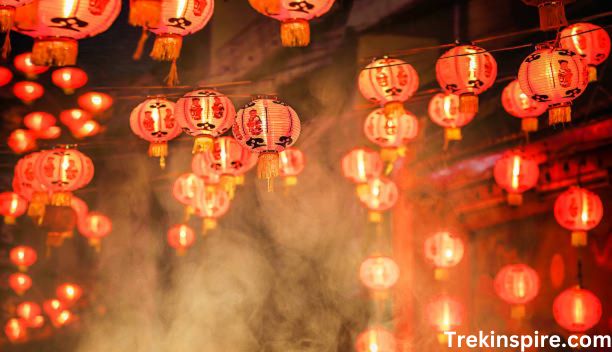
Chinese Festival Symbols
Chinese festivals are adorned with a rich array of symbols, each carrying deep cultural significance and conveying auspicious messages. These symbols are also woven into the fabric of celebrations, adding layers of meaning and enhancing the festive atmosphere.
Red: The Color of Joy and Prosperity
The color red is ubiquitous in Chinese festivals, representing joy, prosperity, and good fortune. Red lanterns also illuminate streets and homes, symbolizing warmth and happiness. Red decorations, clothing, and food add vibrancy and festivity to the celebrations.
Lanterns: Illuminating the Night Sky
Lanterns are a prominent symbol of Chinese festivals, illuminating the night sky with their colorful glow. They represent hope, new beginnings, and the warding off evil spirits. Lantern festivals, showcasing intricate designs and vibrant colors, are a mesmerizing spectacle during celebrations.
Firecrackers: A Celebration of Sound
The crackling sound of firecrackers is an integral part of Chinese festivals, symbolizing the dispelling of evil spirits and the ushering in of good fortune. Firecrackers are use to mark important moments, such as the turning of the New Year or the climax of a dragon dance performance.
Zongzi: A Taste of Tradition
Zongzi, glutinous rice dumplings wrapped in leaves, a traditional food enjoyed during the Dragon Boat Festival. They represent unity, perseverance, and the commemoration of Qu Yuan, a poet who drowned himself to protest corruption.
Mooncakes: A Symbol of Reunion
Mooncakes, round pastries filled with sweet or savory fillings, are a culinary highlight of the Mid-Autumn Festival. They also symbolize family reunion, harmony, and the appreciation of the full moon.
Plum Blossoms: Representing Resilience and Hope
Plum blossoms, with their delicate beauty and ability to bloom in harsh winters, are a symbol of resilience, hope, and the coming of spring. They are often featured in decorations and artwork during Chinese festivals.
Peach Blossoms: Symbolizing Longevity and Romance
Peach blossoms, with their vibrant colors and sweet fragrance, are a symbol of longevity, romance, and prosperity. They are also often associated with the Chinese New Year and the Mid-Autumn Festival.
Chinese festival symbols embody the country’s rich cultural heritage and convey messages of happiness, prosperity, family unity, and resilience. These symbols also add a layer of depth and meaning to the celebrations, making them a significant part of Chinese tradition.
Other Chinese festival
Some other Chinese festival which is describe below:
Chinese New Year (Spring Festival)
Chinese New Year is the most important festival in China, and it is celebrate all over the world by Chinese communities. The festival is also rooted in ancient agricultural traditions, and it marks the beginning of the new year on the lunisolar Chinese calendar. Chinese New Year is a time for family reunions, feasting, and making offerings to ancestors.
Mid-Autumn Festival
The Mid-Autumn Festival is a harvest festival that is celebrate on the 15th day of the eighth month of the Chinese calendar. The festival is also traditionally celebrate with family gatherings, mooncakes, and lantern festivals. The mooncakes are round and white, which symbolize the full moon, and they are filled with sweet or savory fillings.
Dragon Boat Festival
The Dragon Boat Festival is celebrated on the fifth day of the fifth month of the Chinese calendar. The festival originated in ancient China, and it is said to commemorate the death of Qu Yuan, a poet and statesman who drowned himself to protest against the corrupt government. The festival is also celebrated with dragon boat races, eating zongzi (glutinous rice dumplings filled with meat or sweet fillings), and drinking wine made from wormwood leaves.
Lantern Festival
The Lantern Festival is the final day of the Chinese New Year celebrations. The festival is traditionally celebrated with lantern parades, lion dances, and fireworks displays. The lanterns are also often made of paper or silk and are decorated with colorful patterns. The lion dances are believed to ward off evil spirits, and the fireworks displays are a symbol of the new year.
Qixi Festival (Double Seventh Festival)
The Tomb-Sweeping Festival also celebrated on the 100th day after the winter solstice. The festival is a time for families to visit the graves of their ancestors and sweep away the weeds. The festival is also a time for eating dumplings and other special foods.

Popular Chinese Festival Destinations
Here are some popular Chinese Festival Destinations:
- Beijing, China: Beijing is the capital of China and is home to many famous landmarks, such as the Forbidden City and the Great Wall of China. The city also has a large Chinese community, so there are many opportunities to celebrate Chinese festivals.
- Shanghai, China: Shanghai is a modern metropolis with a rich history and culture. The city is home to many museums, art galleries, and temples. There are also many Chinese festivals celebrated in Shanghai, such as the Dragon Boat Festival and the Lantern Festival.
- Guangzhou, China: Guangzhou is a major commercial city in southern China. The city also known for its Cantonese cuisine and its many shopping malls. Guangzhou also has a large Chinese community, so there are many opportunities to celebrate Chinese festivals.
- Chengdu, China: Chengdu is the capital of Sichuan Province and is home to the world-famous panda bears. The city also known for its hot and spicy cuisine. Chengdu has many Chinese festivals celebrated throughout the year, such as the Spring Festival and the Qingming Festival.
- Harbin, China: Harbin is the capital of Heilongjiang Province and is located in northeastern China. The city also known for its cold winters and its annual Ice and Snow Festival. Harbin also has many Chinese festivals celebrated throughout the year, such as the Lantern Festival and the Dragon Boat Festival.
These are just a few of the many great destinations to celebrate Chinese festivals. When choosing a destination, it is important to consider your interests and budget. With so many options to choose from, you are sure to find the perfect destination to celebrate Chinese festivals in style.
Chinese Festival Tours
Chinese Festival Tours are also a great way to experience the rich culture and traditions of China firsthand. These tours typically coincide with major Chinese holidays, providing an immersive and authentic experience of the festivities.
Popular Chinese Festival Tours
- Chinese New Year Tours: Immerse yourself in the vibrant celebrations of the Chinese New Year, the most important holiday in the Chinese calendar. Witness traditional lion dances, dragon parades, and fireworks displays, and savor delicious dumplings and other festive treats.
- Lantern Festival Tours: Experience the enchanting beauty of the Lantern Festival, held on the 15th day of the first month of the lunar calendar. Stroll through lantern-lit streets, admire the intricate designs and vibrant colors, and enjoy traditional performances and activities.
- Dragon Boat Festival Tours: Witness the thrilling excitement of dragon boat races, a tradition that commemorates the poet Qu Yuan. Cheer on the teams as they paddle furiously through the water, and sample the traditional zongzi dumplings and other delicacies.
- Mid-Autumn Festival Tours: Bask in the glow of the full moon during the Mid-Autumn Festival, a time for family reunions and mooncake enjoyment. Participate in lantern lighting ceremonies, savor the delectable mooncakes, and appreciate the moon’s beauty at moon-viewing parties.
Benefits of Chinese Festival Tours
- Immersive Cultural Experience: Immerse yourself in the vibrant atmosphere of Chinese festivals, witnessing traditional customs, performances, and cuisine.
- Authentic Local Interactions: Engage with locals, learn about their traditions, and gain a deeper understanding of Chinese culture.
- Hassle-Free Travel Arrangements: Also enjoy hassle-free travel arrangements, including transportation, accommodation, and tour guides.
- Variety of Tour Options: Choose from a variety of tour options to suit your interests, budget, and travel style.
- Unforgettable Memories: Also create unforgettable memories as you experience the richness and beauty of Chinese festivals.



